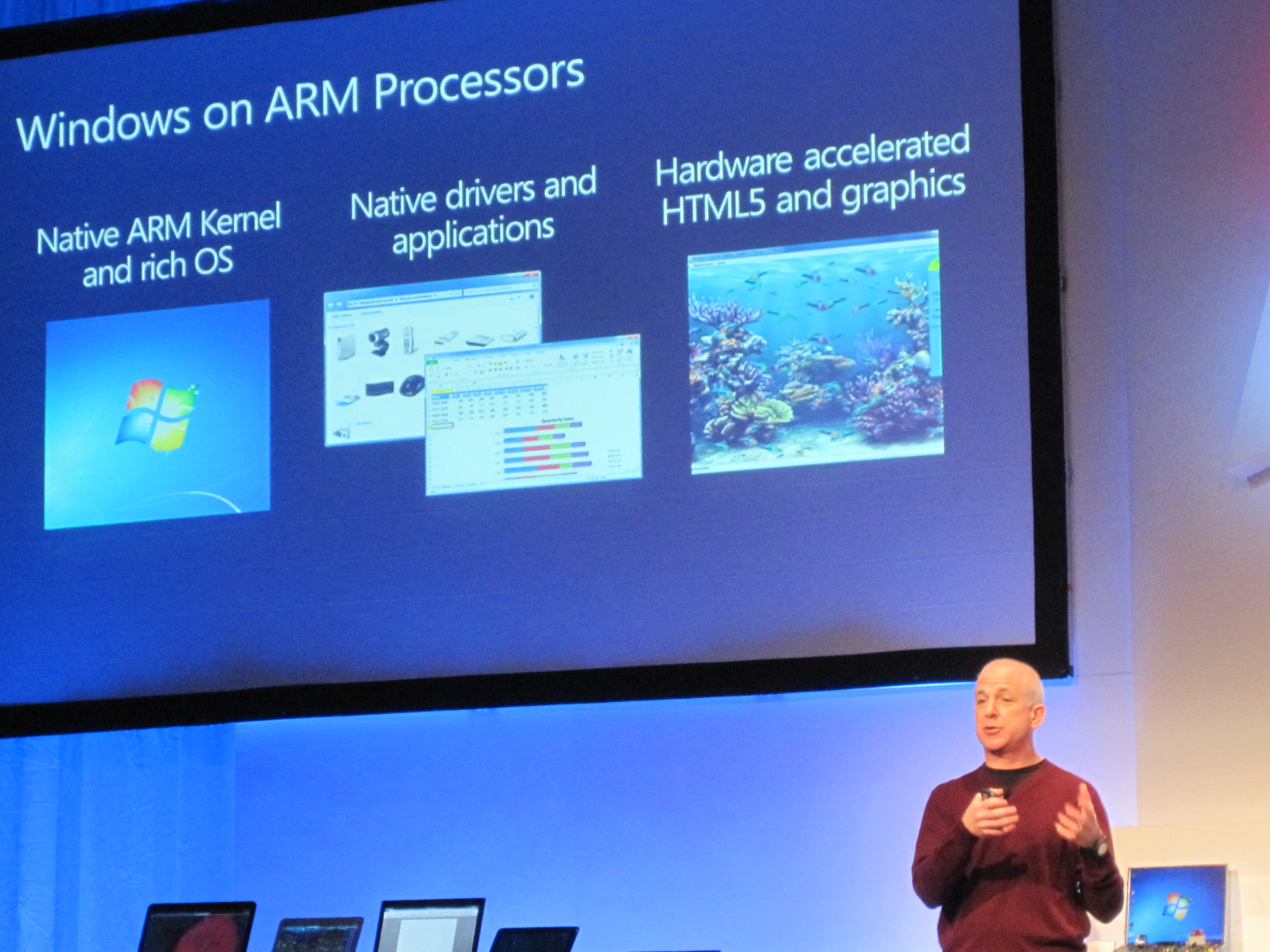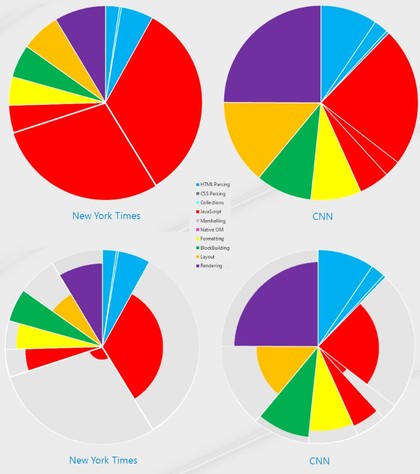How fast can Windows 8 run on ARM?
Windows performance on ARM depends on multitasking

Among the many Windows 8 topics that Microsoft hasn't discussed is what ARM performance is going to be like.
After all, while Windows ARM tablets will have dual core or quad core cpus running at a 1.8 or 2.5GHz speed – faster than most netbook Atom processors and the Celerons in cheap ultraportables, or even ultra-low power Core i5s - what does that mean for an operating system as complex as Windows?
One of the key features will be the GPU. That's what IE10 relies on to get fast performance using hardware accelerationand IE10 is the engine powering the Windows 8 touch interface and the new breed of Web apps.
ARM has been suggesting recently that its Mali GPU will be as fast as Xbox graphics within 18 months but there are other options already; both Texas Instruments and Qualcomm have announced ARM SoC packages for Windows 8 with powerful GPUs in, and Nvidia's quad core Kal-El Tegra (coming in Android tablets this year) will have 12 GPU cores in.

USE THE CORES: Performance on ARM is about how well the OS handles multi-threading (and how well apps like IE take advantage of that)
The lead program manager on the IE team, Rob Mauceri, pointed out to TechRadar how important the hardware acceleration and multicore support in IE is for the new Web worker feature, which is what will make those Web apps run fast.
"In same way we take compiled JavaScript and run it in the background with Chakra [IE's fast JavaScript engine], we can take that script as it's compiled for a worker and execute that across multiple cores. This is really some of the power in why workers are so interesting because you can keep that main thread running for user responsiveness while other calculations are going on."
Sign up to the TechRadar Pro newsletter to get all the top news, opinion, features and guidance your business needs to succeed!

GPU FAST: The browser subsystems that speed up in IE using hardware acceleration will speed up Windows 8 on ARM as well
But does that still hold true for browsers on mobile devices as well, like phones (or, say, ARM Windows tablets)? That's up to the OS, he told us.
"It depends really on the operating system and the underlying support that's there for threading. Multi-threading has existed on single core chips and systems for years and it's really about the scheduling that the operating system does and how efficiently it does that. I think we'll see [mobile] hardware improve over time and more and more multicore CPUs on there - and at the same time it's really the OS and the interactions that you have there that enables it."
Does 64-bit matter?
While almost every PC that ships now is running the 64-bit version Windows, despite rumours ARM still hasn't publicly announced a 64-bit chip and all the ARM processors announced for Windows are 32-bit.
That's not a problem for performance because while there are cases where 64-bit processing can be faster (because you can work with more of a media file at a time), in general 32-bit processing will actually be faster.
Jason Weber is responsible for performance in IE and he doesn't see 64-bit support being significant for browsers at this point. "Even a hefty JavaScript app is not physically that big to manipulate in memory.
And when you move to 64-bit, you have 64-bit pointers – they're twice as big so you have more data to move." That wouldn't slow down Chakra significantly; "it would be about the same speed on 32 and 64-bit but there's a definite overhead."
As with Office on the ARM version of Windows, IE 10 on ARM is more than just an app Microsoft has to have running well (and it's about more than the user interface and Web apps that IE will power, important as they are). IE and Office are proof points; if Microsoft can port the full versions of Office and IE to ARM, then ARM on Windows is the same powerful operating system it is on Intel processors.
Microsoft is doing all the right things to make Windows, IE and Web apps perform well on ARM. Developers of other applications are going to have to think about the same multi-threaded, GPU-accelerated way of programming to make sure that Windows apps can run fast on ARM as well.
Mary (Twitter, Google+, website) started her career at Future Publishing, saw the AOL meltdown first hand the first time around when she ran the AOL UK computing channel, and she's been a freelance tech writer for over a decade. She's used every version of Windows and Office released, and every smartphone too, but she's still looking for the perfect tablet. Yes, she really does have USB earrings.